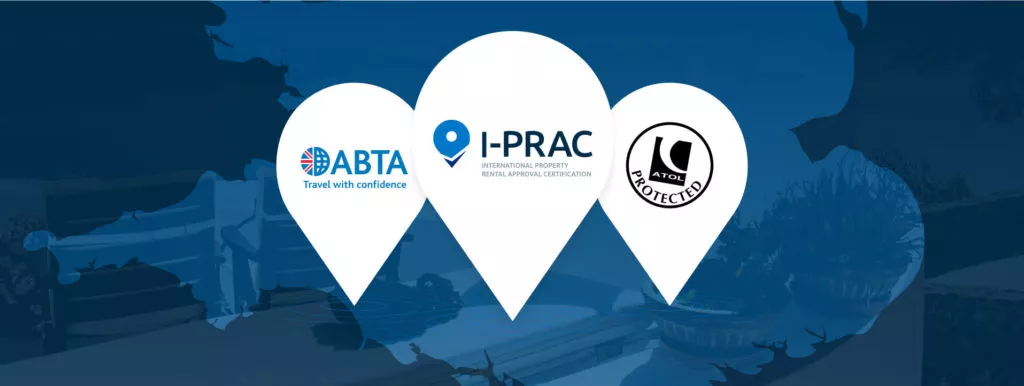According to the Office of National Statistics, UK residents spent £45.4 billion on overseas visits in 2018 – a rise of 1% on 2017.
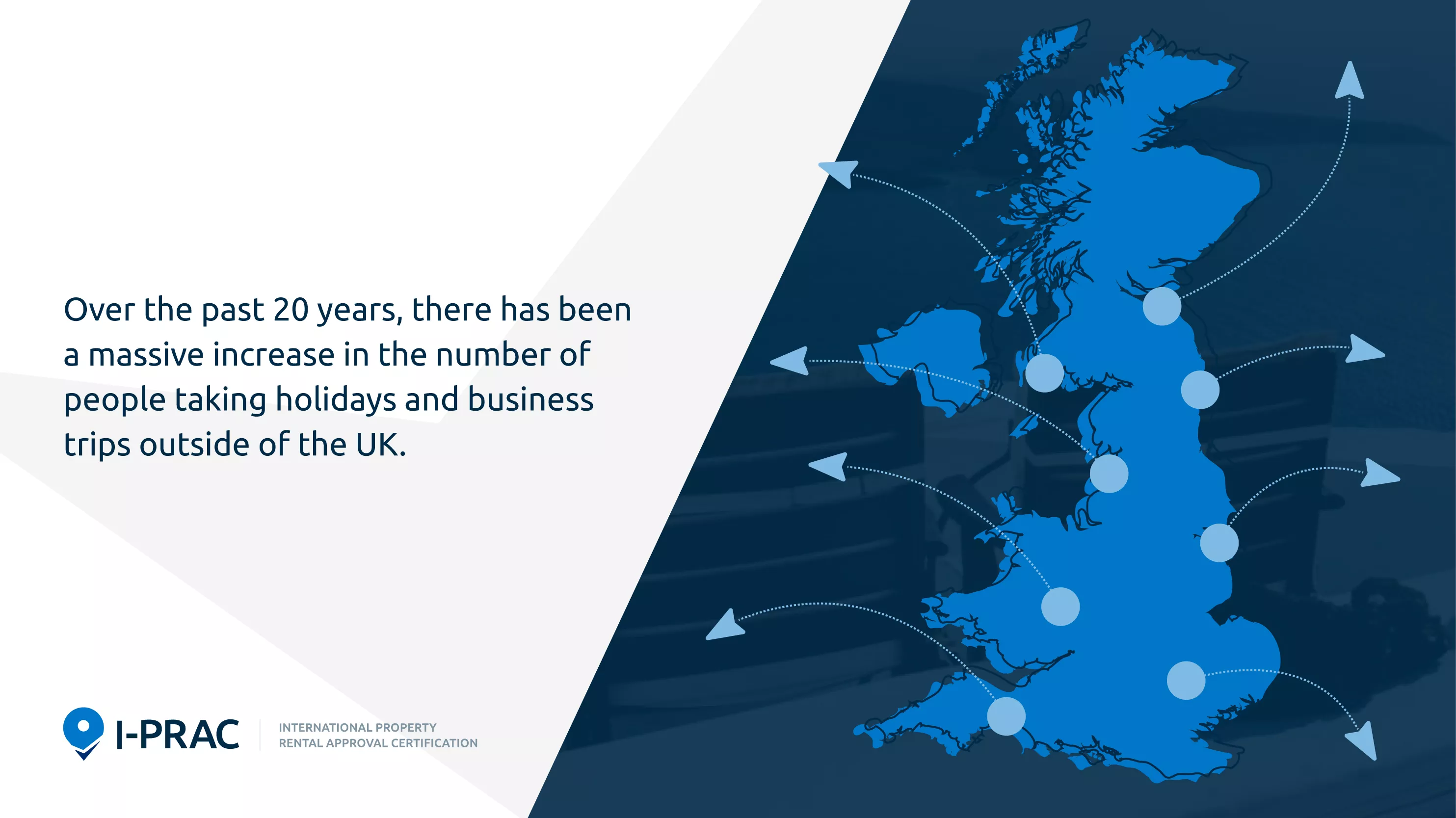
That’s why it’s becoming even more important for holidaymakers and travellers to ensure they are protected against various holiday and travel-related issues.
By checking that the travel agency, rental agency or property owner you are booking with is covered by ABTA, ATOL or I-PRAC, you can rest assured that you will be protected in the event of unforeseen circumstances such as property rental fraud, a company going into administration or aspects of your trip being mis-sold.
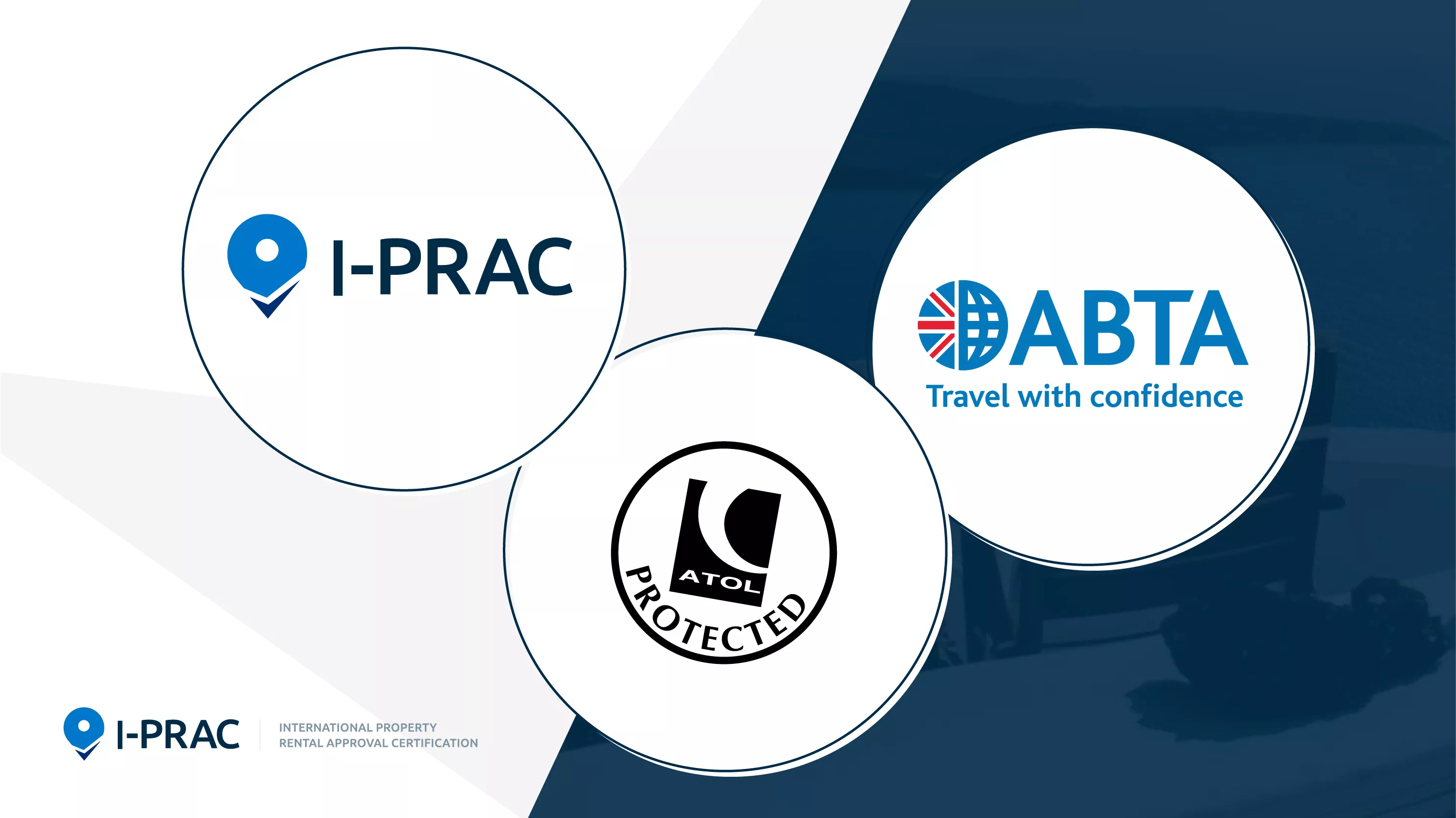
Here, we provide an overview of why these three industry accreditations were introduced, what they cover for both customers and businesses, and how to apply for membership or cover.
ABTA
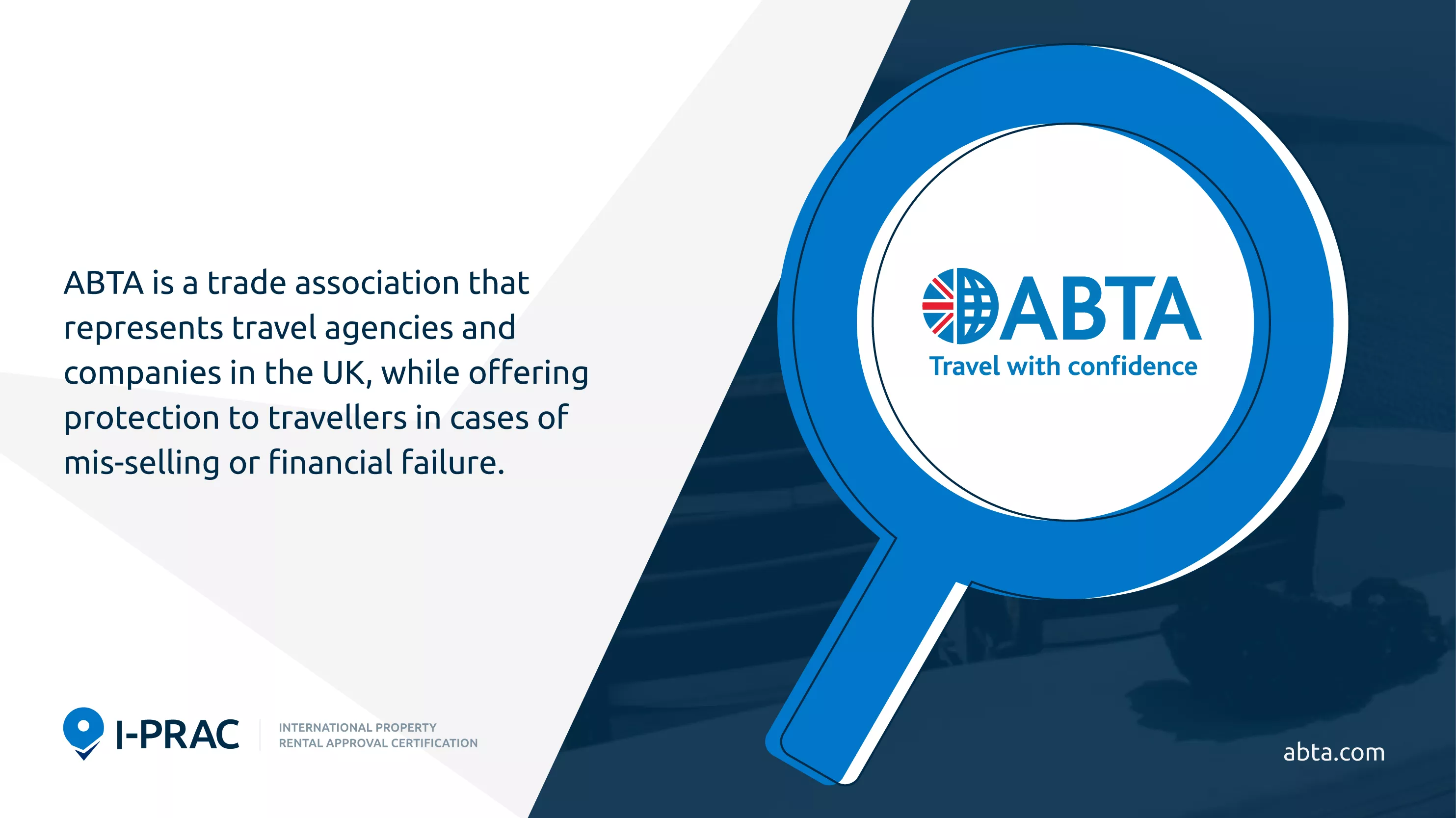
ABTA Members – Travel Agencies & Companies
ABTA members are expected to adhere to its Code of Conduct, which outlines what a customer should expect to receive when arranging a holiday with an ABTA-accredited provider.
ABTA Customers – Holidaymakers/Travellers
Customers are advised to verify ABTA members by visiting the ABTA website and entering the travel company’s name, postcode, town or ATBA number into the search bar.
What does ABTA cover?
Whereas ATOL covers package holidays that include flights, ABTA only covers those involving rail, cruise or self-drive. ABTA offers two types of protection for travellers – legal and financial.
Legal protection applies in cases where a holiday doesn’t appear to match what was promised by an ABTA-accredited operator, either in its brochures, confirmation documents or online. Travellers can reasonably expect to receive an alternative holiday or compensation if a travel company is proven to have “mis-sold” a holiday – thereby breaching the terms of the contract between itself and the customer.
ABTA also offers financial protection to travellers in the event that their travel agency or tour operator goes into administration. If this happens before a holiday, customers will get a full refund, while those who are already abroad will have their return travel arranged by ABTA.
The level of protection will depend on whether the holiday is a package holiday or a ‘linked travel arrangement’. New regulations introduced in 2018 stipulate that package holidays have full legal and financial protection, whereas ‘linked travel arrangements’ only have financial protection, and at a lower level than package holidays. This means it only covers the insolvency of a travel agency and won’t protect customers if an airline or cruise line ceases trading. The new regulations apply to holidays booked on or after 1 July 2018.
What are the benefits of ABTA membership?
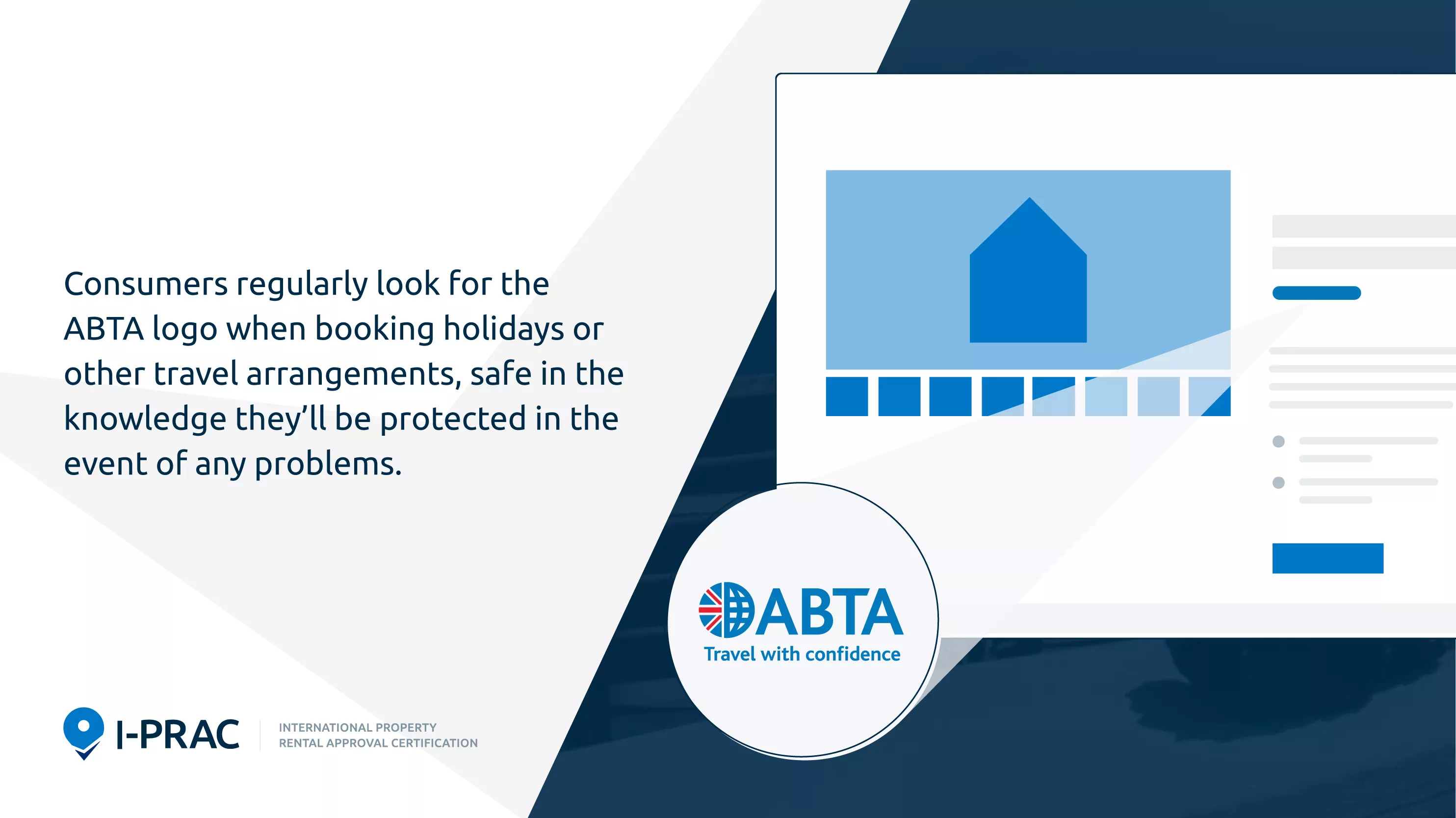
By becoming a member of ABTA, travel companies can position themselves as trusted operators, giving travellers the confidence to book through them, while ABTA’s dispute resolution service ensures any complaints can be resolved without the cost of going to court.
As a trade association, ABTA works hard to represent its members’ interests, lobbying the government for fairer taxation, regulation and financial protection. It also offers additional support to its members, including free business and legal advice, access to promotional offers, and updates on the latest industry developments that could affect their business.
How to become an ABTA member
Any travel organiser can apply online to become an ABTA member, but there are certain financial criteria that need to be fulfilled, depending on whether the company is a travel agent, managed branch or principal (tour operator). Membership is also subject to ABTA carrying out a risk assessment.
ATOL
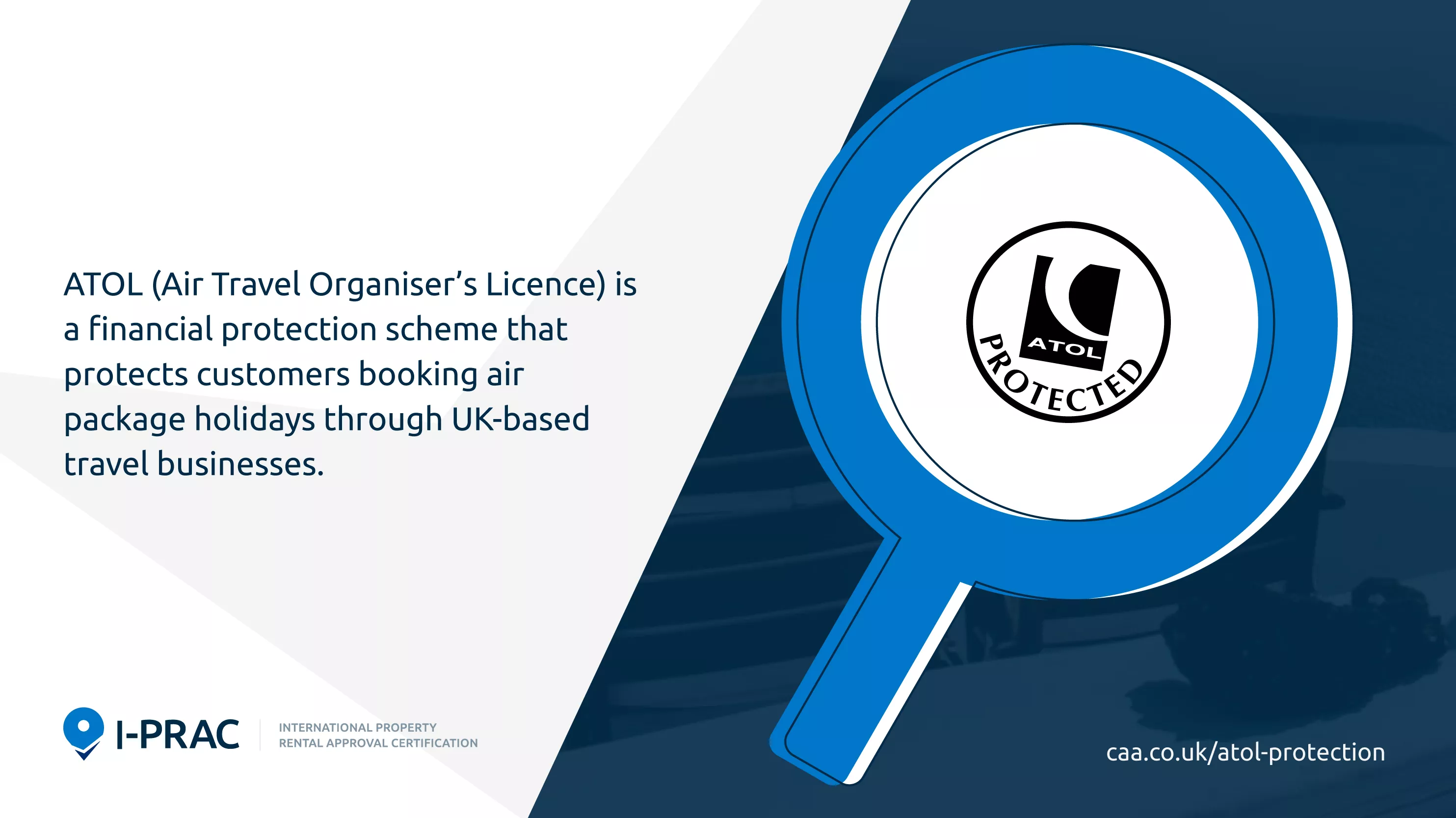
ATOL was first introduced by the UK’s Civil Aviation Authority (CAA) in 1973 following the failure of several high-profile travel companies, which left thousands of people stranded overseas.
ATOL License Holders – Travel Agencies & Companies
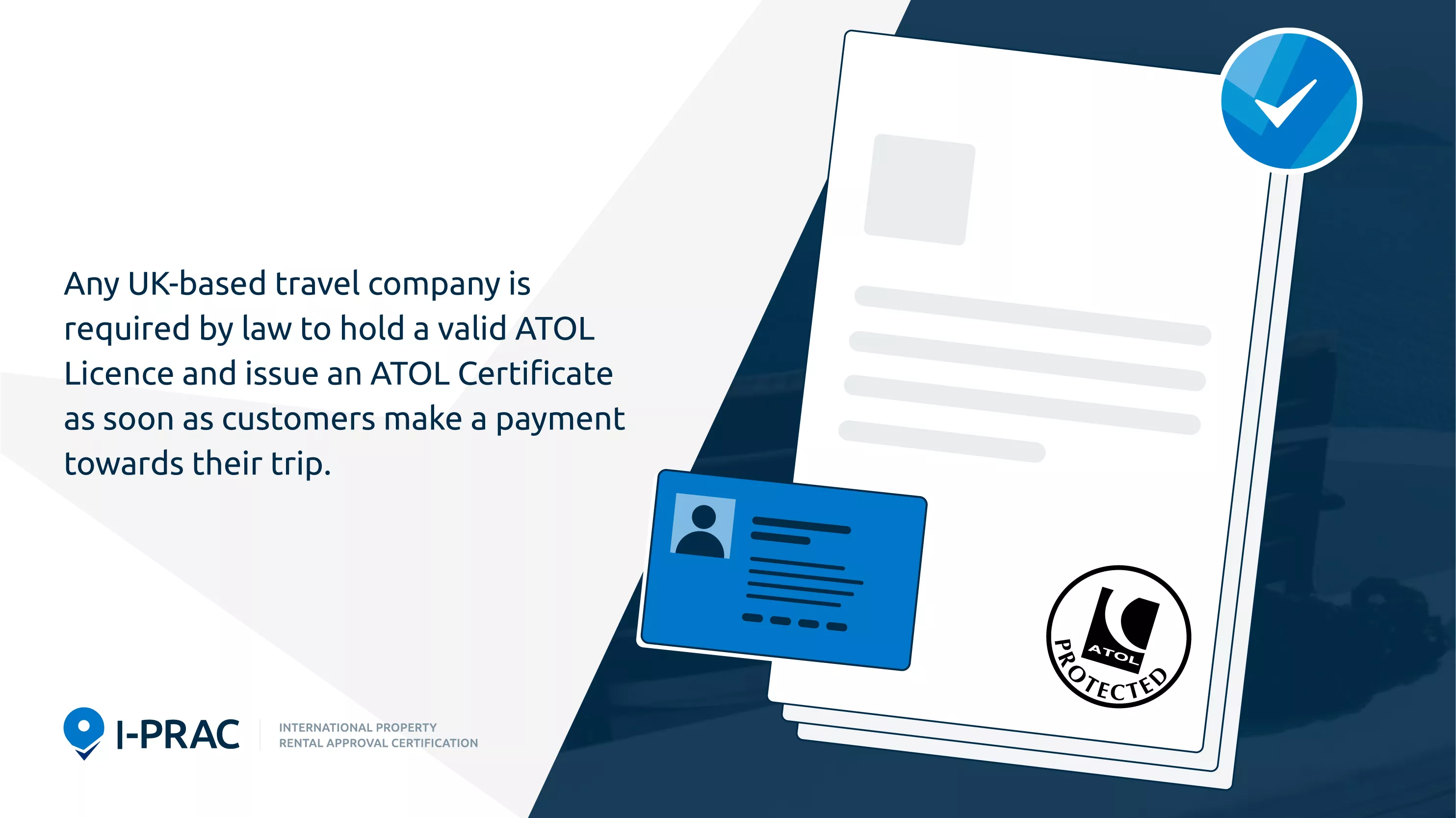
Customers can verify an ATOL member by visiting the ATOL website and entering the travel firm’s name or 4-5 digit ATOL number.
ATOL Customers – Holidaymakers/Travellers
If a company with an ATOL falls into administration, the ATOL scheme ensures customers who booked with the firm can complete their holiday and return home safely without losing their money. Alternatively, ATOL will help arrange a full refund if the company collapses before the holiday.
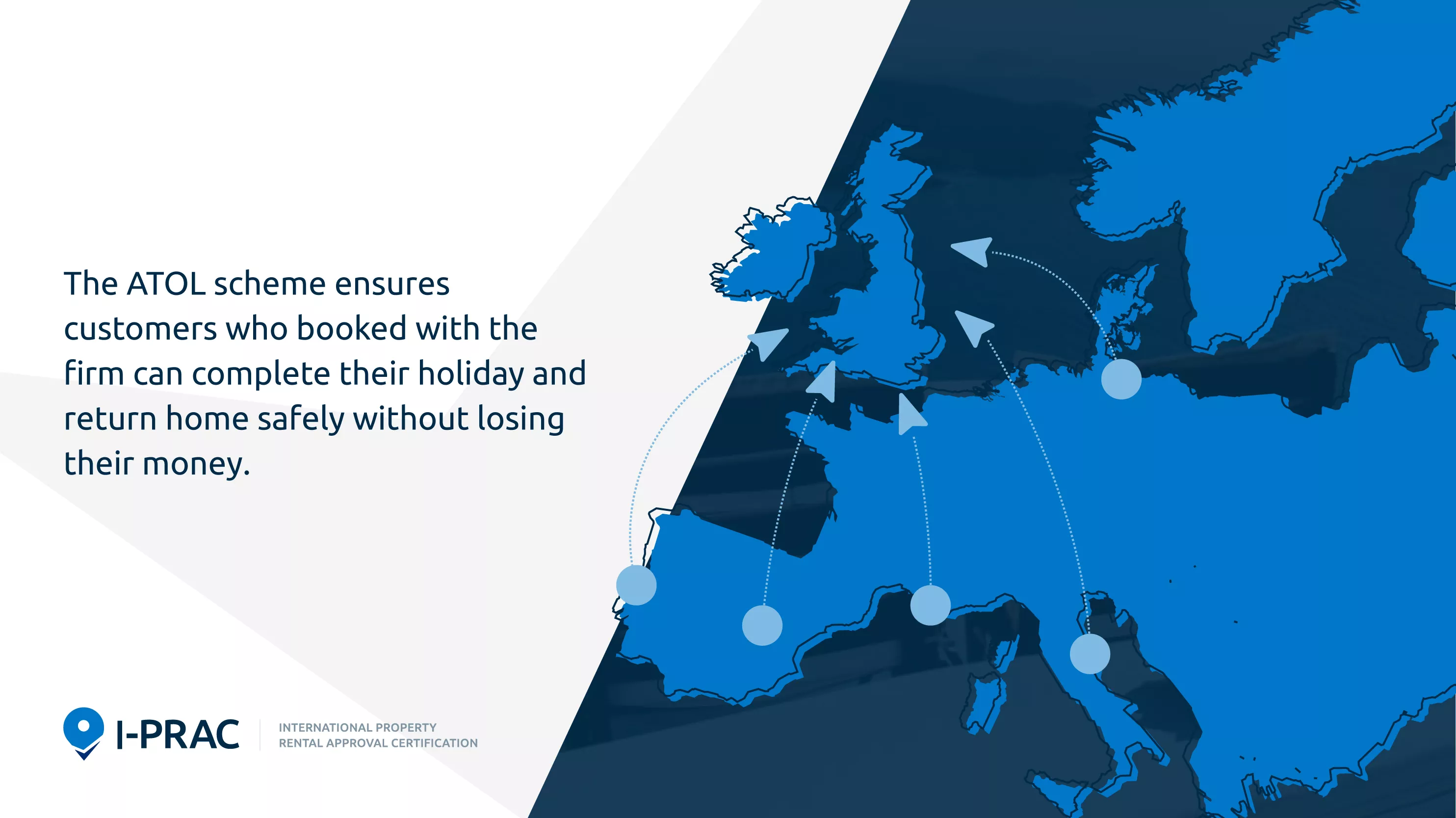
What does ATOL cover?
ATOL covers the majority of air package holidays arranged by travel businesses operating in the UK. According to the law, your holiday should be protected if it is booked through a single travel firm and includes one of the following:
- Flights and car hire
- Flights and accommodation (including a cruise)
- Flights, accommodation and car hire
It also applies to certain flight-only bookings, typically those where the customer doesn’t receive their tickets immediately. ATOL does not cover flight and accommodation bookings that are made separately.
How to apply for an ATOL licence
There are five different types of ATOL licences available, as summarised here. The application process may differ depending on which licence is required, and companies must hit specific financial criteria for the Standard ATOL, Trade ATOL and Small Business ATOL (SBA).
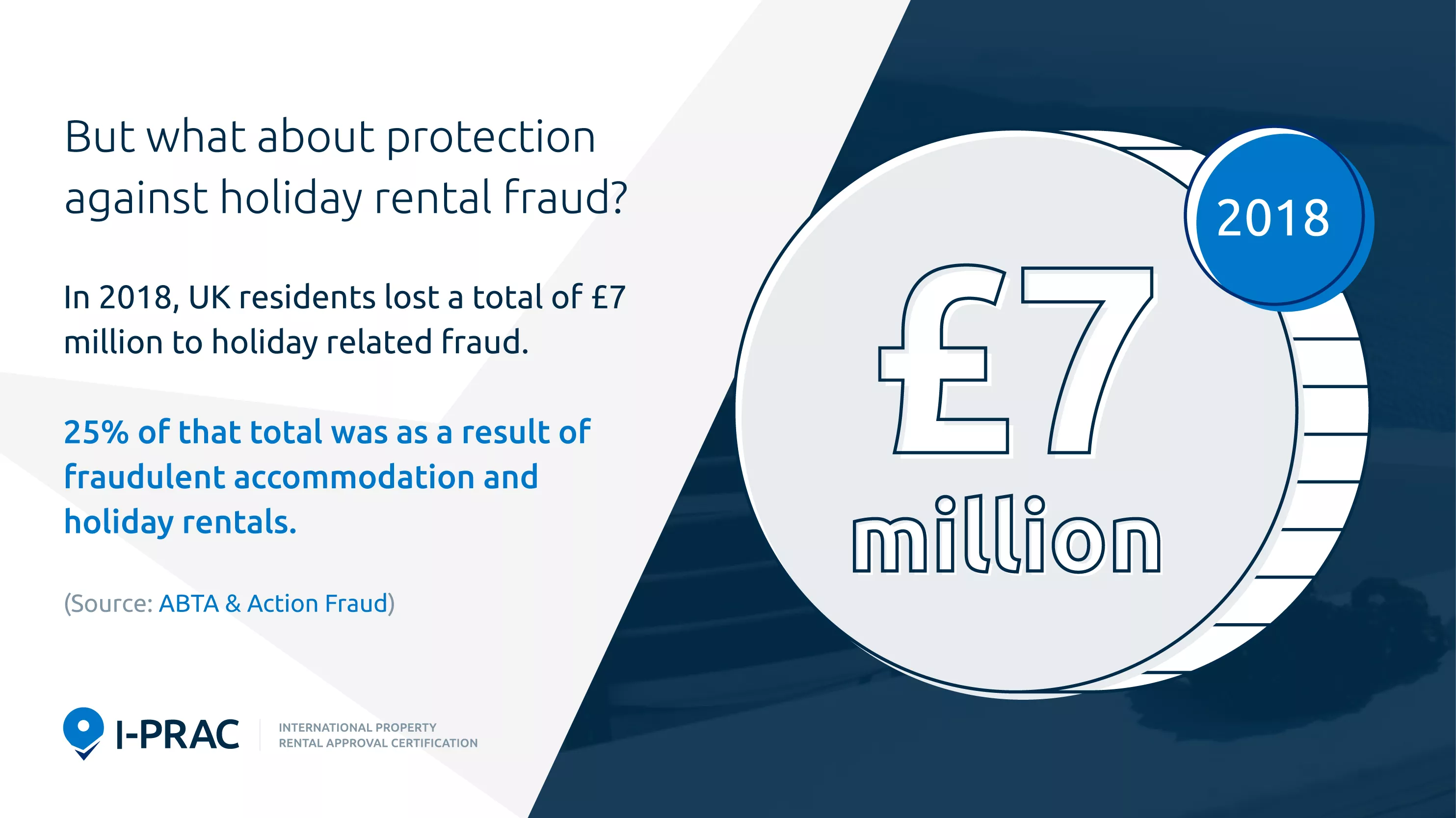
I-PRAC
I-PRAC was founded in 2014 by a team of short-term rental professionals, including CEO Chris Maughan who has spent over 20 years in the corporate accommodation industry, working with clients including Google, Twitter, Nike and Disney.
The most recently-established of the three consumer protection bodies, I-PRAC was launched at a time when more cases of holiday rental fraud were being reported – an issue that isn’t covered by ABTA or ATOL.
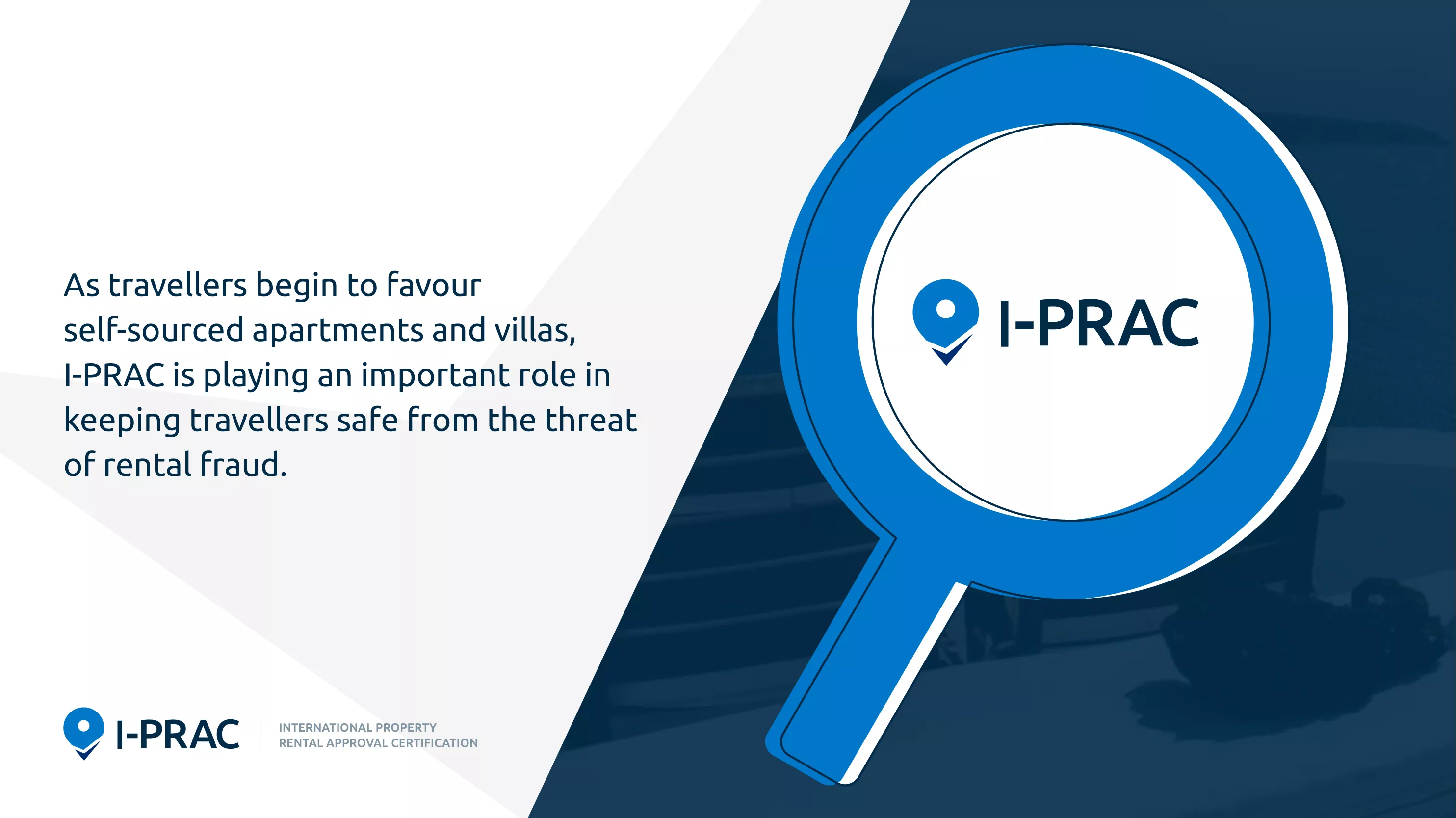
More than 5,000 travellers in the UK lost a total of £7 million to holiday-related fraud in 2018, with 25% of fraud cases relating to the sale of accommodation. However, according to statistics from I-PRAC, 55% of travellers wouldn’t report fraud if they fell victim to it; suggesting the problem is far larger than reported.
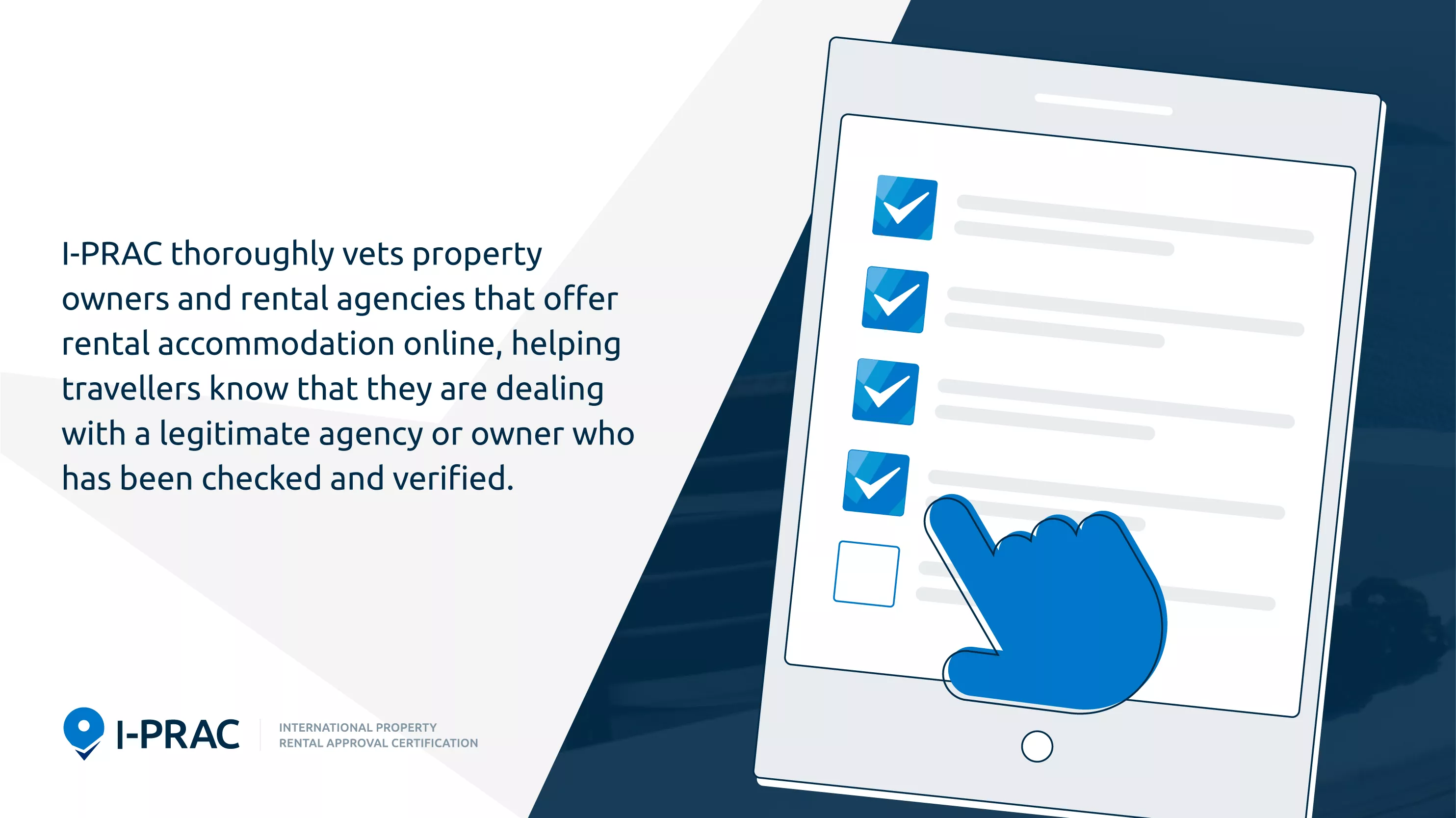
I-PRAC thoroughly vets property owners and rental agencies that offer rental accommodation online, either through their own websites or via Airbnb, Booking.com, Expedia, Vrbo (formerly HomeAway) or any of the numerous booking platforms now available to travellers. Despite the growing popularity of such platforms, a lack of proper verification procedures means there’s nothing to prevent fraudsters establishing fake listings on these sites.
When booking with an I-PRAC approved provider, travellers will know they are dealing with a legitimate agency or property owner whose credentials have been thoroughly checked and verified. All registered bookings with I-PRAC members are 100% guaranteed against rental fraud.
I-PRAC operates globally and isn’t solely limited to helping UK travellers. Its team works with property owners, managers and local authorities in numerous countries across the world.
What does I-PRAC cover?
I-PRAC protects travellers from sophisticated fraudsters who may have established fake websites, property listings or social media profiles, advertising rental accommodation that either doesn’t exist, isn’t available to rent, or is already occupied.
Fraudulent operators will usually bypass traditional communication and payment methods, asking travellers to pay via direct bank transfer rather than through a website or rental platform’s secure payment facility. They will typically lure customers in with cheap, last-minute deals, using real property photos and fake reviews that otherwise look convincing.
With many legitimate rental professionals also offering discounts and taking payment via bank transfer, it can be difficult for travellers to identify fraudulent operators. As such, the only way to verify that a rental agency or owner is safe to book with is to check whether or not they are I-PRAC Approved.
I-PRAC checks the identity and property ownership credentials of rental agencies and property owners, working closely with governments to verify documentation such as passports, utility bills and bank statements. On top of this, it takes a thorough look at property listings and reviews, using reverse image searches and sophisticated technology to identify fake photos, as well as those that have been used elsewhere online, but for a different property. Applicants are also asked to answer questions over the phone as part of the verification process, which can take up to three weeks.
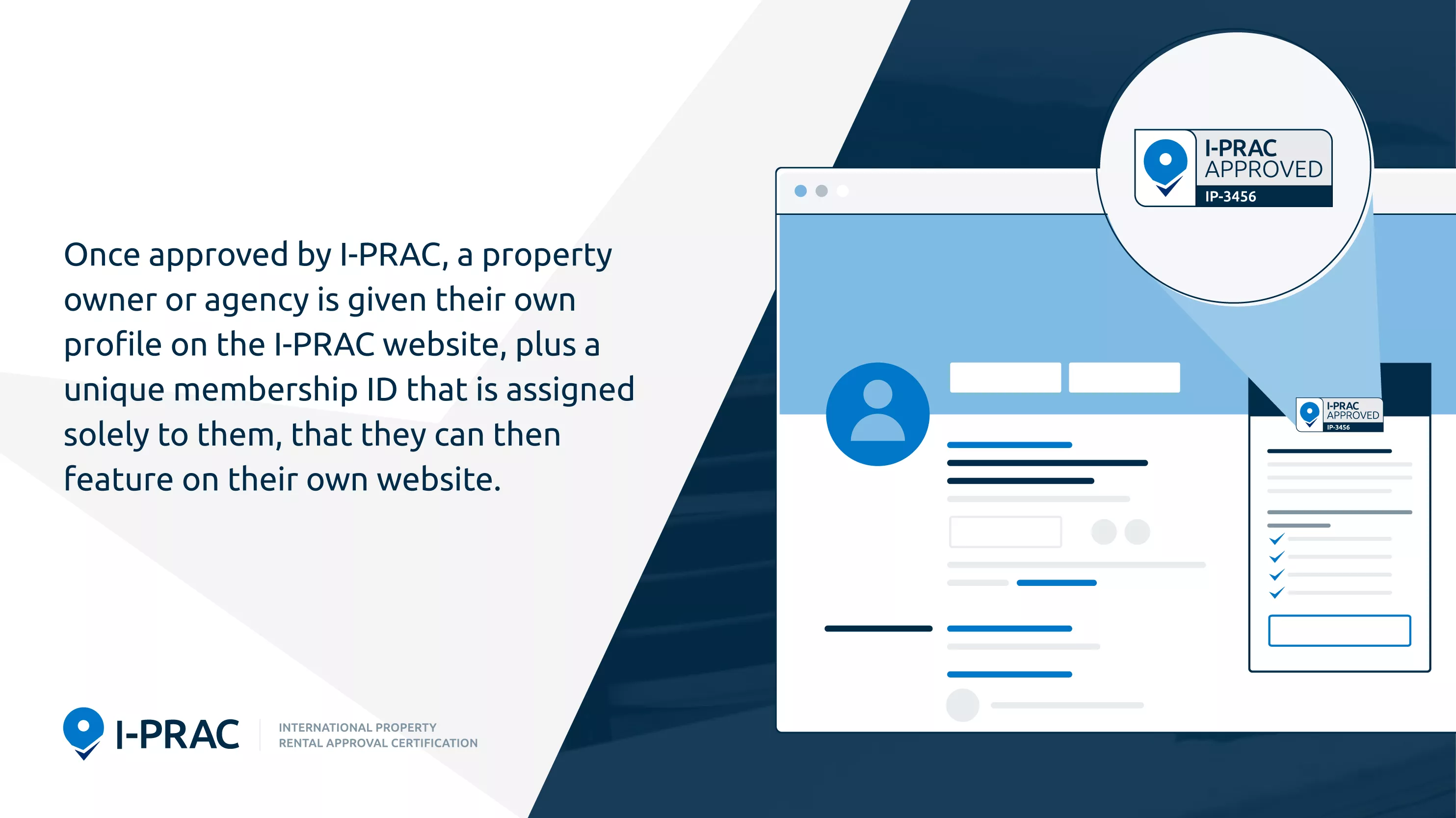
A traveller can use an I-PRAC member’s profile to verify any details prior to booking accommodation, such as their registered bank account and property address.
To find an I-PRAC Member’s profile, a traveller simply has to visit the I-PRAC website and search for their unique ID number, as featured in the I-PRAC logo on the member’s own website or property listings.
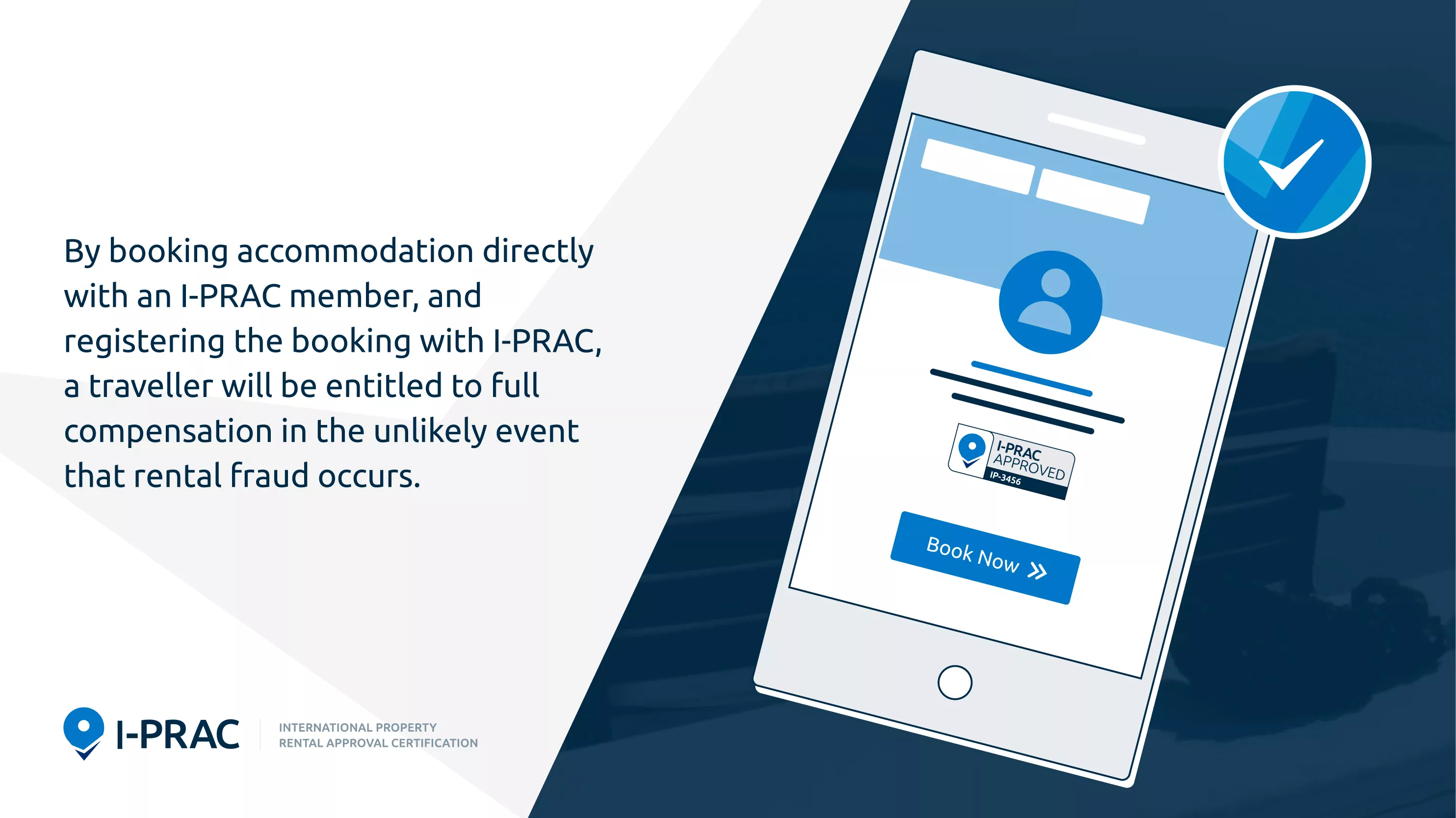
When a booking is registered with an I-PRAC member, they will receive an email detailing the arrival and departure dates, the traveller’s personal details, and the price paid. If they are aware of the booking, a final confirmation will be sent to the traveller, so they know the booking is secure. The booking is also logged by I-PRAC, so if a traveller does experience any issues, they can easily report it via the I-PRAC website.
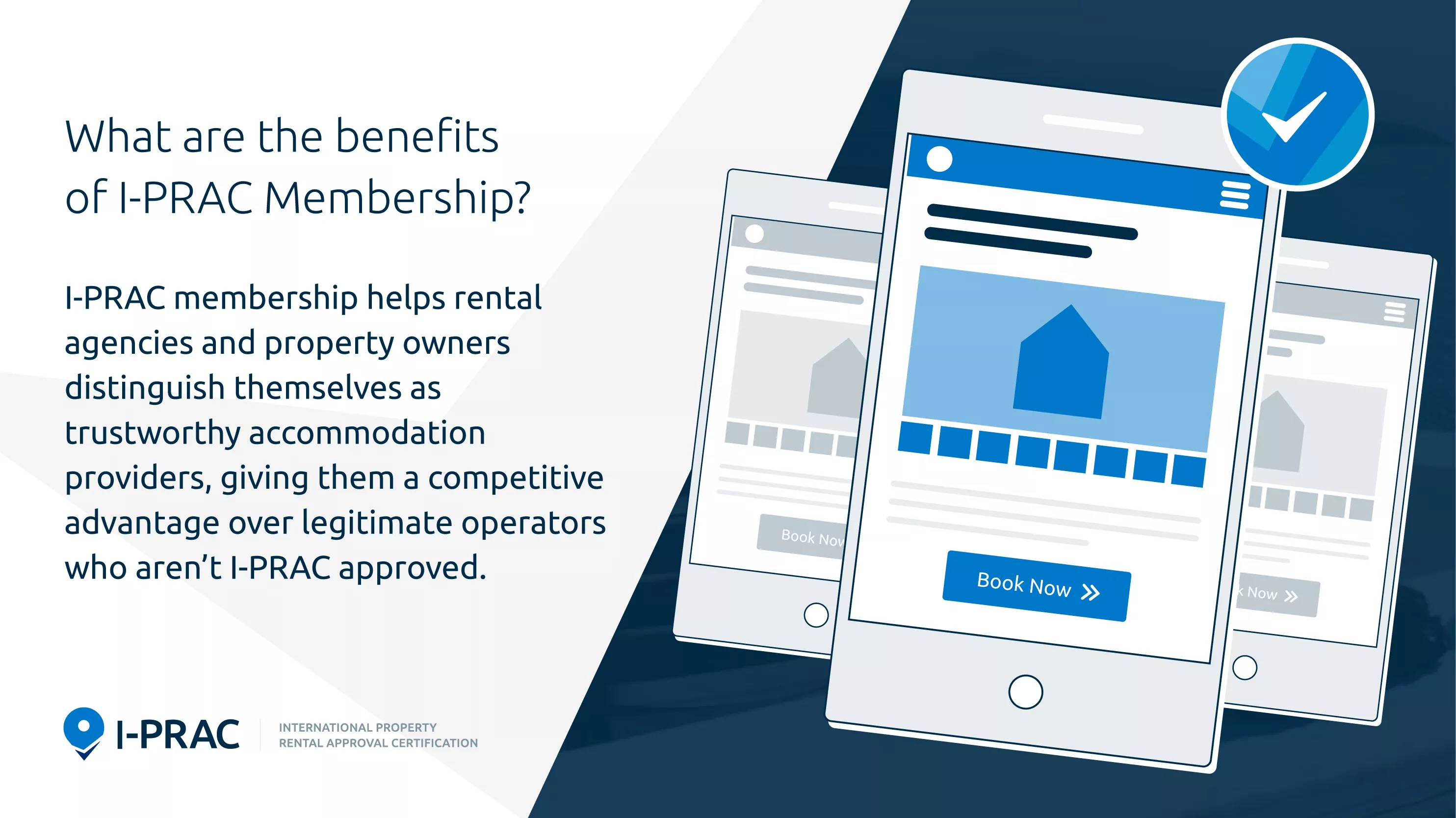
When a customer sees a provider is I-PRAC Approved, it gives them the confidence to book with them directly, safe in the knowledge that they won’t be handing their money to fraudulent operators.
Rather than waiting a number of months for payment, which can happen when listing a property on an online rental marketplace, I-PRAC members can benefit from direct, upfront payments. This is usually the preferred payment option for many travellers, but they don’t always have the confidence to book directly through an owner or agency’s website. However, this is more likely if the property owner or rental agency is I-PRAC approved.
How to apply for I-PRAC membership
Property owners and rental agencies can apply for I-PRAC membership online. As part of the process, they are required to provide copies of official documentation including passports, proof of address and certificates of incorporation.
For more information on I-PRAC and its approvals process, please feel free to get in touch or browse our website. For the latest from I-PRAC and the holiday rental industry, including advice and guidance on holiday rental fraud, visit our media area.


